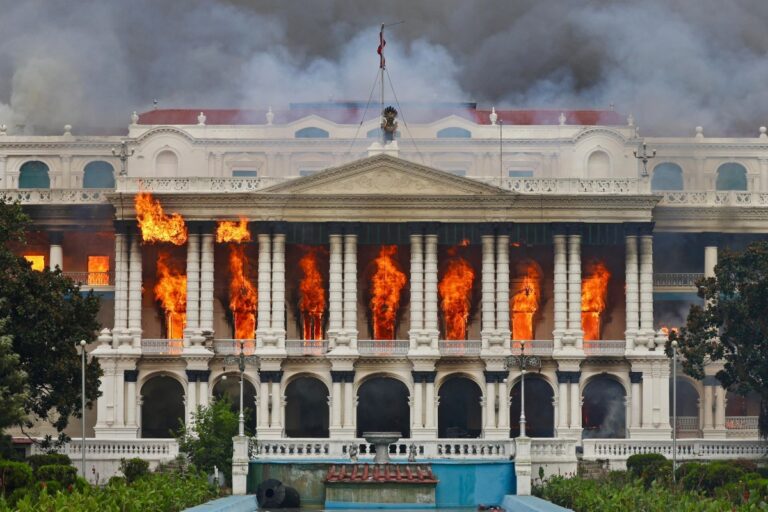By Peter Omopo | September 13, 2025
Supporters of President Bola Tinubu have pushed back against growing calls on social media urging Nigerians to stage protests inspired by recent youth-led demonstrations in Nepal.
The Nepali uprising, driven largely by Generation Z activists, toppled the country’s prime minister after weeks of unrest over politicians’ lavish lifestyles. Protesters defied curfews in Kathmandu earlier this week, setting fire to government buildings including the Supreme Court and parliament. The violence marked Nepal’s deadliest political crisis in years.
In Nigeria, some activists and online commentators drew parallels with local grievances. Juwon Sanyaolu, leader of the Take-it-Back Movement, wrote on X:
“In 2020, Americans had Black Lives Matter. Nigerians were inspired; we did #EndSARS. In 2024, Kenya had the Finance Bill protest; it inspired us to do #EndBadGovernance. It’s 2025. Will Nigerian youths take lessons from Nepal?”
Others echoed the call, with one user, Sylvester, warning that a Nigerian protest “may even be worse than Nepal’s revolution.” Another, Ubtrix, urged demonstrators to take their demands directly to Aso Rock Villa.
But pro-government voices cautioned against any attempt to replicate Nepal’s revolt, warning of potential chaos. Former presidential aide Reno Omokri argued that the unrest in Kathmandu had led to destruction and regret among Nepalis.
“We reject for Nigeria the Nepali breakdown of law and order and senseless looting and destruction of public and private property that has been mislabelled as a protest,” he said, urging protesters to #StartFromYourStateofOrigin.
Comedian Seyi Law also criticised those celebrating Nepal’s crisis. “They are happy about Nepal until rebuilding becomes a problem. They will never learn from Libya,” he wrote on X.
Findings by Saturday PUNCH showed that the hashtag #StartFromYourStateofOrigin trended widely on Friday, shared by pro-government accounts including Nigeria Youth Advocate VP, Bushari Adewale.
Civil society groups, however, faulted government failures. Enefa Georgewill, chairman of the Rivers Civil Society Organisations, accused leaders of ignoring repeated demands for reform, while Debo Adeniran, President of the Committee for the Defence of Human Rights, noted that although Nepal’s uprising differed from Nigeria’s #EndSARS protests, rising hardship in Nigeria echoed some of the frustrations in Kathmandu.
Religious leaders also weighed in. Reverend Yomi Kasali, General Overseer of the Foundation of Truth Assembly, warned that no nation is immune to revolution.
“What happened in Nepal two, three days ago can happen in Nigeria. No country is immune. The myth that it can’t happen here may not be in our time,” he said at a Lagos news conference.
The debate has revived memories of the #EndSARS protests of October 2020, when youth-led demonstrations against police brutality ended in a violent crackdown at the Lekki Toll Gate, drawing global outrage.
As Nigeria battles economic hardship and rising discontent, analysts warn that government responses to public grievances may determine whether the Nepal scenario remains an online debate or evolves into mass action.

